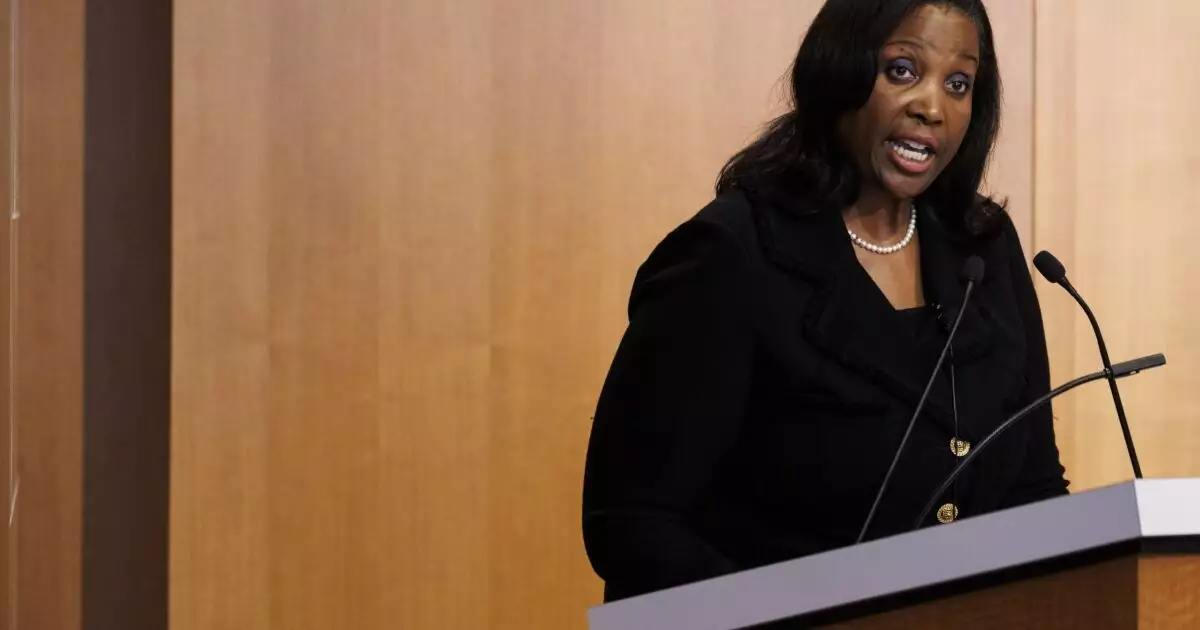In recent days, the discourse surrounding Federal Reserve Governor Lisa Cook has taken a troubling turn, revealing not only the fragility of institutional independence but also exposing a disturbing trend of political interference that threatens the core functions of the U.S. financial system. President Donald Trump’s overt threat to fire Cook if she does not resign is less about any alleged misconduct and more about undermining the independence of the Federal Reserve, a cornerstone of American economic stability. His aggressive language and willingness to challenge established norms reflect a broader pattern of trying to bend independent agencies to political will, which poses a grave risk to the stability and credibility of the entire monetary framework.
The Federal Reserve’s design includes protections from political pressure, intended to shield its members from short-term partisan interests in favor of long-term economic health. The law stipulates that members can only be removed for “cause,” usually interpreted as misconduct or dereliction of duty. President Trump’s threats and fiery rhetoric blur these lines, hinting at a desire to manipulate the Fed’s decision-making in line with political objectives rather than sound economic principles. Such efforts threaten not only the autonomy of individual appointees but also the very foundation of an independent central bank that has historically insulated monetary policy from political cycles.
The Confrontation: A Political Weapon or Personal Vendetta?
At its core, the controversy over Cook’s supposed mortgage misstatement is, in reality, a political tool wielded in a broader partisan battle. Accusations like those brought forward by figures such as Bill Pulte often carry a political overtone, especially when they target figures aligned with opposing political ideologies. The timing of President Trump’s comments coincides with heightened partisan conflicts, particularly against individuals associated with the Biden administration or who are perceived as part of the political establishment he opposes.
This environment of politically motivated accusations weakens public trust in crucial institutions. When statements threaten to remove independent officials based on allegations that are still under investigation, it invites speculation that financial or personal missteps are being weaponized as leverage against political rivals or policymakers. It also sets a precedent where the independence of the Fed can be challenged not through lawful process but through inflammatory rhetoric, which ultimately endangers the credibility of the entire system.
Moreover, the assertion that the Fed is a “uniquely structured, quasi-private entity,” as noted by the Supreme Court, further complicates the situation. It underscores the importance of maintaining their independence, especially in an era where the executive branch has shown a willingness to push the boundaries of constitutional norms. Attempts to interfere politically not only threaten the Fed’s credibility but also risk destabilizing confidence in markets and the economy at large.
Implications for Financial Stability and Democratic Governance
While critics might argue that holding officials accountable for financial misconduct is necessary, conflating personal issues with their ability to serve undermines the rule of law and due process. Yet, the frequency and intensity of Trump’s recent threats signal a departure from this principle. The administration’s flirtation with the notion that “all executive power rests with the president” espouses a dangerously centralized view of authority—one that could erode checks and balances that are vital for a healthy democracy.
This centralization has tangible implications for how monetary policy is set. The White House’s desire to influence interest rate decisions — urging the Fed to lower rates to benefit government borrowing— displays a blatant attempt to politicize economic levers. Such interference risks sparking inflationary pressures, reducing the Fed’s ability to fulfill its dual mandate of maximum employment and price stability.
Furthermore, broader concerns emerge about the erosion of institutional independence. The Fed’s credibility hinges on its ability to operate free from political meddling. When political figures threaten or threaten to remove members based on partisan considerations, it incentivizes a politicization of economic policy decisions, ultimately compromising the stability that the central bank is meant to safeguard. This dynamic creates a perilous precedent where economic decisions are driven more by electoral cycles than by sound fiscal prudence.
—
In the end, President Trump’s threats against Lisa Cook epitomize the broader challenge facing American institutions in a polarized political climate. The independence of the Federal Reserve is a vital safeguard for the economy, and attempts to undermine it are not only unwarranted but reckless. It is within the framework of constitutional protections and institutional norms that economic stability is secured—precisely the norms that Trump’s rhetoric seeks to diminish. If the core pillars of independence are sacrificed, the consequences will ripple far beyond individual appointments, threatening to plunge the nation into a cycle of instability and chaos that no political agenda can justify.

